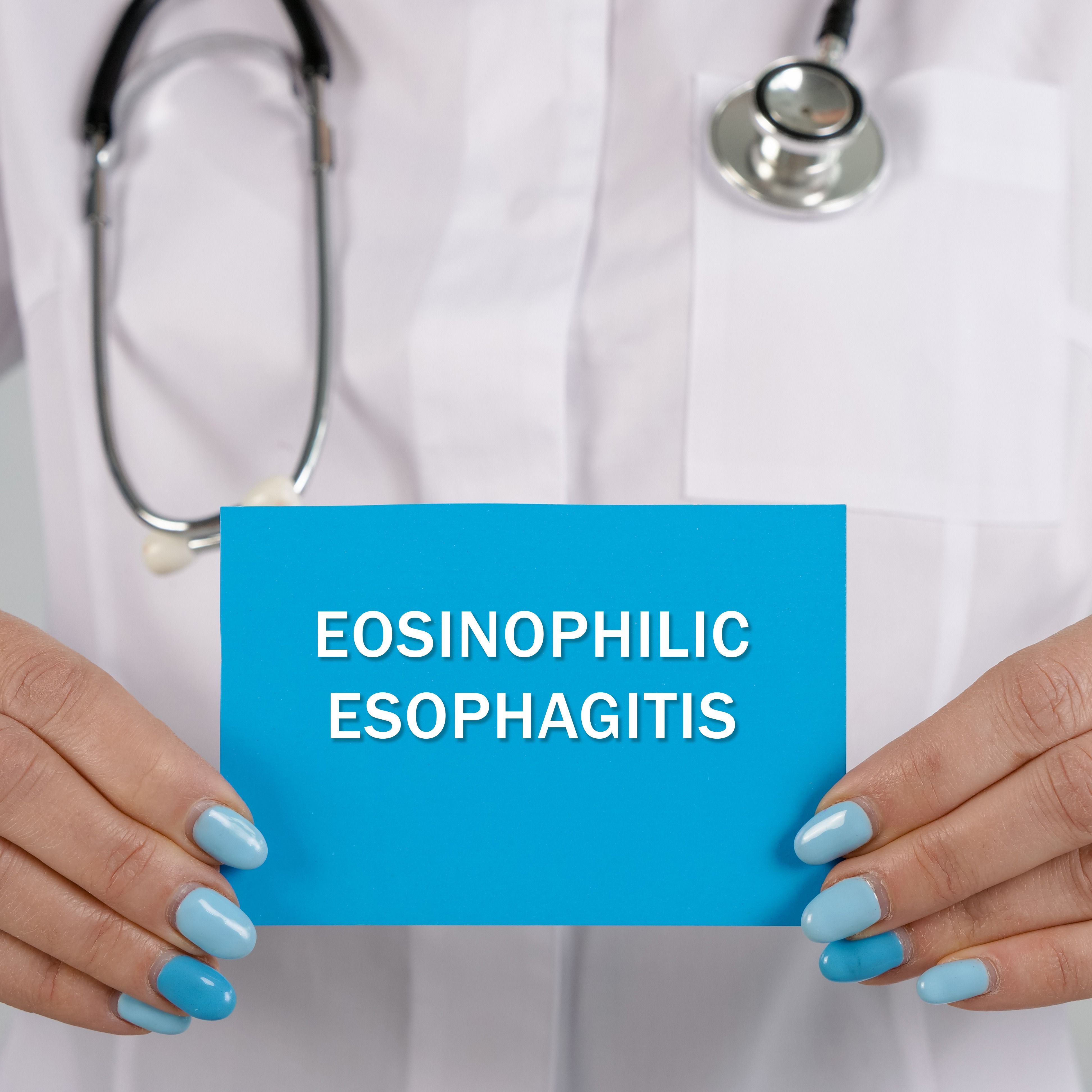- Clinical Technology
- Adult Immunization
- Hepatology
- Pediatric Immunization
- Screening
- Psychiatry
- Allergy
- Women's Health
- Cardiology
- Pediatrics
- Dermatology
- Endocrinology
- Pain Management
- Gastroenterology
- Infectious Disease
- Obesity Medicine
- Rheumatology
- Nephrology
- Neurology
- Pulmonology
FDA Approved Dupilumab as the First Treatment for Eosinophilic Esophagitis
©Yurii Kibalnik/stock.adobe.com

The US Food and Drug Administration (FDA) approved dupilumab (Dupixent®, Regeneron Pharmaceuticals, Inc.) to treat eosinophilic esophagitis (EoE) in patients aged ≥12 years weighing at least 40 kgs, marking the first approval of a treatment for EoE.
“As researchers and clinicians have gained knowledge about eosinophilic esophagitis in recent years, more cases of the disorder have been recognized and diagnosed in the U.S.,” said Jessica Lee, MD, director of the Division of Gastroenterology in the FDA’s Center for Drug Evaluation and Research, in a May 20, 2022, press statement. “Today’s approval will fulfill an important unmet need for the increasing number of patients with eosinophilic esophagitis.”
The efficacy and safety of dupilumab in EoE was studied in a randomized, double-blind, parallel-group, multicenter, placebo-controlled trial. The trial included 2 separate 24-week treatment periods (part A and part B) that were conducted independently in separate groups of patients. In both parts, patients received placebo or 300 mg of dupilumab every week.
The 2 primary efficacy measures were the proportion of patients who achieved a pre-determined level of reduced eosinophils in the esophagus at 24 weeks and a change in Dysphagia Symptom Questionnaire (DSQ) score from baseline to week 24.
In part A of the trial, 60% of the 42 patients who received dupilumab achieved the pre-determined level of reduced eosinophils compared to 5% of the 39 patients in the placebo group. Patients in the dupilumab cohort experienced an average improvement of 22 points in their DSQ score compared to 10 points in those who received placebo.
In part B, 59% of the 80 patients receiving dupilumab achieved the pre-determined level of reduced eosinophils in the esophagus compared to 6% of the 79 patients who received placebo. Patients who received dupilumab experienced an average improvement of 24 points in their DSQ score compared to 14 points in those who received placebo, according to the FDA.
“Assessments incorporating the perspectives from patients with EoE supported that the DSQ score improvement in patients who received Dupixent in the clinical trial was representative of clinically meaningful improvement in dysphagia,” noted the FDA in the press release.
The most common reported side effects associated with dupilumab included injection site reactions, upper respiratory tract infections, joint pain, and herpes viral infections.
The drug is contraindicated in patients with known hypersensitivity to dupilumab or any of its inactive ingredients. Dupixent® carries warnings and precautions, including ones addressing potential development of allergic reactions, conjunctivitis, keratitis, or joint pain; use in patients with certain parasitic infections; and use in conjunction with live vaccinations, according to the FDA.
Dupilumab received priority review and breakthrough therapy designations for this indication.
Clinical Tips for Using Antibiotics and Corticosteroids in IBD
January 5th 2013The goals of therapy for patients with inflammatory bowel disorder include inducing and maintaining a steroid-free remission, preventing and treating the complications of the disease, minimizing treatment toxicity, achieving mucosal healing, and enhancing quality of life.
